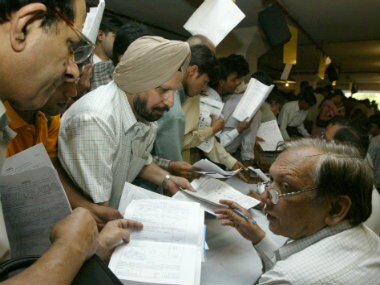What is new about the extension of the due date for filing Income Tax return? This is the question asked by many on hearing the Central Board of Direct Taxation (CBDT) decision conveyed via Twitter in the evening of 26 July 2018 that it has decided to extend the due date for filing income tax returns from 31 July 2018 to 31 August 2018.
The Central Board of Direct Taxes (CBDT) extends the ‘due date’ for filing of Income Tax Returns from 31st July, 2018 to 31st August, 2018 in respect of taxpayers who were liable to file their Returns by 31.07.2018.
— Income Tax India (@IncomeTaxIndia) July 26, 2018
In India, every tax amnesty scheme rolled out with unfailing regularity is supposed to be the last opportunity to come to the path of rectitude. Tax evaders, therefore, laughed up their sleeves and waited for the next amnesty scheme. Much the same was the case with the last date for filing returns. Wily people either waited till 31 March of the assessment year when the penalty regime kicked in or waited in the smug knowledge that the monsoons would come to their rescue and the denouement would be put off. But this year is new. Because a new section 234F was put in place by the Finance Act 2018 saying a fee of Rs 5,000 would have to be filed by those who file their returns after the due date but on or before 31 December of the assessment year and Rs 10,000 for delay beyond 31 December. The fee has been capped at Rs 1,000 for those whose income doesn’t exceed Rs 5 lakh. This no-nonsense regime was all set to kick in come 1 August 2018. [caption id=“attachment_4280621” align=“alignleft” width=“380”]  Representative image[/caption] Anyone filing their return for the financial year 2017-18 on 1 August 2018 would have had to cough up Rs 5,000 as late filing fee lest their return was rejected. That the new peremptory law describes it as fee and not as penalty is significant. Being a fee it has to be paid upfront and cannot wait for it to be imposed as is the case with a penalty. Though the tweet is cryptic and does not spell out what prompted this thaw in the rigidity of the peremptory law that imposed a fee even for a day’s delay, it is clear that the Narendra Modi government did not want a martinet image in an election year. And yes it must also have feared the opposition jibe—common man penalised even as the Vijay Mallyas and Nirav Modis of the world flee the country with mind-boggling loots. The majority of the taxpayers including the salaried class that forms the major chunk of the middle class confront 31 July as the last date for filing their income tax returns. Therefore relaxation by one full calendar month is a huge relief and climb-down by the government. There are some who wonder why the annual rigmarole of extension in a day and age where the lion’s share of the income tax returns are filed online. The monsoons might throw life pell-mell but not the netizens’ lives. And they also aver that the solemnity of the new regime that does not allow mocking of the last date of filing of returns has been undermined. Maybe. But the Modi government must have reckoned with the political consequences of slapping a penalty (euphemistically called fee) of Rs 5,000 even for a day’s delay and come to the sobering conclusion that middle class’ goodwill is more important than revenue in an election year.
Will this extension go on from month-to-month in an election year? Well, time alone will tell whether the government feels constrained to do so or not but extension by one full calendar month will at least give it a ‘sensitive government’ image. Even if it does not give further extensions it can always say, we relaxed the rigor by a month, didn’t we?
There could be a view that the due date mentioned in section 139(1) is sacrosanct in the context of the new penalty regime codified in section 234F so much so that even if the last date is extended, the fee of Rs 5,000/Rs 10,000 is payable for late filing. This is wrong because the CBDT has the power to make benevolent rules that go against the rigor of the Parliament-made law. In the event, the due date under section 139(1) stands extended to 31 August 2018. By extending the due date, the CBDT has also implicitly suspended the penalty regime by one full month. (The writer is a senior columnist and tweets @smurlidharan)


)
)
)
)
)
)
)
)
)



